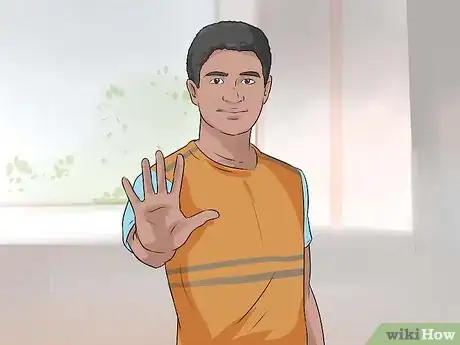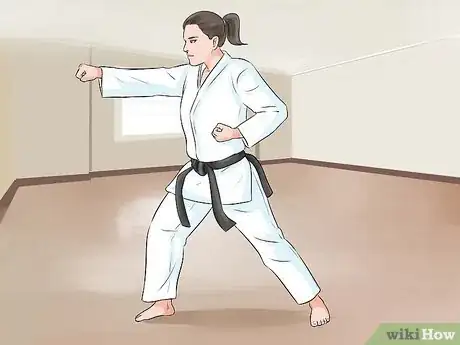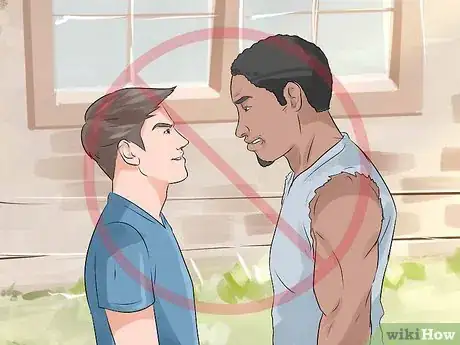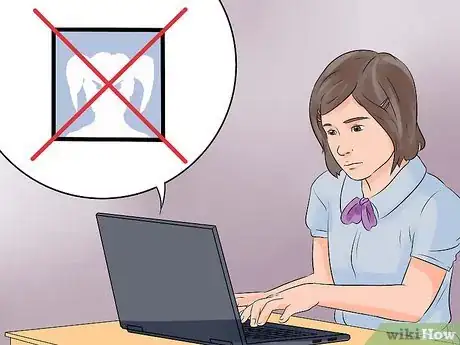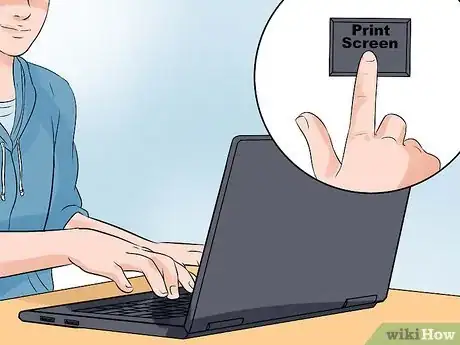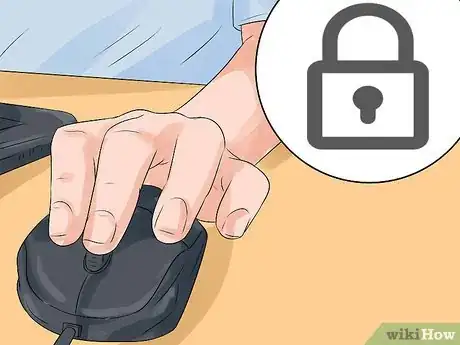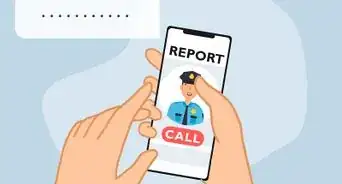This article was co-authored by Nancy Lin, PhD. Dr. Nancy Lin is a Licensed Clinical Psychologist and the Owner of Go to Sleep San Diego, a private practice providing therapy for people suffering from insomnia, trauma, depression, and related problems. She is also trained in issues related to cultural diversity in mental health. Dr. Lin holds a Bachelors degree in Psychology from The University of California, Berkeley and a Masters degree in Medical Anthropology from the University of London, SOAS. She earned her Ph.D. in Clinical Psychology from The University of Massachusetts Boston and completed an APA-accredited internship and postdoctoral training at the VA San Diego Healthcare System (VASDHS).
There are 7 references cited in this article, which can be found at the bottom of the page.
This article has been viewed 301,409 times.
Being the victim of bullying can make you feel terrible about yourself for no reason. If a bully approaches you and starts being mean, it's easy to doubt yourself or to give in to the bully's demands. But if you recognize your own self-worth, don't give in to the bully, and tell an adult when necessary, you can avoid being a victim of bullying and can stop dreading going to school. If you want to know how to stop being a victim of bullying and to start enjoying your life again, see Step 1 to get started.
Steps
Preventing Bullying in School
-
1Exude confidence. Confidence is a bully's biggest enemy. If you want to prevent bullies from thinking that you're an easy target, then you can work on not only developing an inner confidence, but also on projecting confidence. Stand tall, make eye contact with people, look happy to be where you are, and avoid hunching over or looking at the ground. Look engaged and happy when you talk to other people, and walk to class with a purpose, not like you're dragging your feet. Though developing true confidence can take a long time, making the effort can put you on the path to being less likely to be bullied.[1]
- Look at yourself in the mirror. Check out your body language and make sure that it's open and positive.
- While dressing to the nines may not help you feel confident, taking time with your appearance and showing that you care about how you look will make bullies less likely to bother you. Maintaining good hygiene will make you feel better about yourself, which will in turn raise your confidence.
-
2Gather support from your friends. If you have a group of friends or even just a friend or two, this is the time to get their support. You can tell them about what's happening and make sure to stick by them in any threatening situations. If you know when the bully is most likely to approach you, whether it's in the halls or on your walk home, then make sure you're not alone, but walking with at least one friend, so the bully is less likely to approach you. And if you have an older friend, or even an older sibling you can walk with, that will also scare the bully off.
- Unfortunately, bullies love to prey on people who don't have many friends. If this is you, then know that you're not alone, and try to work on developing friendships with people, or at least getting to know a few acquaintances. Just having someone to sit with in the cafeteria or to walk with in the halls will make you less likely to get picked on.
Advertisement -
3Learn to stand up for yourself. If a bully comes up to you and says hurtful things, then your best bet is to exude confidence, stand tall, and to look that person firmly in the eye and say, "Stop!" or, "Leave me alone." Just saying something simple and then moving on can show that you're not letting the bully get you down and that you're willing to stick up for yourself. This may make the bully think that you're not a good target because you're too strong.
- Of course, you have to get a good read on the situation. If you feel like you're in a dangerous or threatening situation, then your best bet may really be to back off and get away from the bully as quickly as possible.
- If the bully keeps annoying you, and saying "Stop!" and standing proud isn't working out, you can try to outright ignore the bully. If you just walk by like you don't see him or her, acting like his or her words are having no effect on you, then the bully will be likely to get bored or to disengage pretty quickly. He or she won't see the point in bullying you if it's not getting a reaction out of you.
-
4Stop living in fear. If you go about your day, thinking about all of the ways that you can be bullied, from being tripped in the cafeteria to being laughed at in class, then you are going to spending your waking life being afraid of everything that can happen. Of course, it's best to be on your guard and to be prepared for anything when you're being bothered by a bully, but you should try visualizing a positive outcome when you think about any of the negative situations that can arise in a bully's presence.[2]
- If you visualize positive results after confrontations with bullies, then you are more likely to achieve what you want.
-
5Consider taking some self-defense classes. While you shouldn't start fighting a bully who comes up to you, and only resort to violence if you have no other option, taking a few self-defense classes, such as karate, can help you not only learn to defend yourself, but to gain the confidence you'll need to stand up to bullies. Just knowing that you could fight back when a bully is approaching you will make you much more confident when you face the bully, and you'll also have more confidence in your own strength.
- If self-defense classes aren't up your alley, you can also consider signing up for an after-school sport. Any sport can help you get into shape, and you may even make a few friends along the way.
-
6Believe in yourself. If you know who you are and have faith in yourself, then you will be less likely to be approached by a bully. You don't have to think you're the greatest person in the world, but always putting yourself first and knowing that your goals and needs are important can go a long way in helping you avoid bullies. If you think you are an interesting, thoughtful, and worthy person, then a bully will be much less likely to bring you down.
- Bullies don't like a challenge; they prey on the weak. If they see you and think, "Hey, there's a guy who is pretty happy with himself," then they won't want to make the effort to try to make you feel bad. But if they think, "There's a guy who is already miserable in his own body," then they'll be more likely to make a move.
-
7Avoid the bully as much as you can. This may sound like an obvious point, but one of the ways you can prevent being bullied is to simply avoid places where the bully is likely to be. Sit in a new spot of the cafeteria. Take a new path to class or a new path home. Do what you can to be away from that person as much as possible. Though you shouldn't change your whole life and schedule just to avoid this person, avoiding the bully will make him or her get bored and to stop making the effort to bother you.
- This is a good short-term strategy, though in the long run, you'll have to take stronger measures to prevent the bullying.
-
8Don't stoop down to the bully's level. If the bully is mean to you, calls you names, or tries to humiliate you in public, of course it will be tempting to be mean to that person back, but if you really want to stop the bullying, then you can't stoop down to the bully's level. If you call him or her names back, try to fight unprovoked, or just engage in general meanness, then you'll be escalating the situation and making it worse for yourself.[3]
- There's nothing more frustrating for a bully than a person who doesn't respond, call him names, or show that he cares at all. If you add fuel to the fire, then you're just giving the bully exactly what he wants.
-
9Don't let the bully see that you care. A bully's goal is to make you cry and to feel worthless. Sure, the things he says may be hurtful and may fill you with self-doubt, but you must never, ever let the bully see that anything he says has an effect on you. If he says something mean and you look visibly upset, then he'll only be encouraged to dole out more of the same. But if he calls you names and you shrug and act like you couldn't care less, then he will be much less likely to keep pestering you.[4]
- Of course, it can be hard to keep your emotions bottled up inside, especially if the bully is really hurting you. Just try to stay calm, breathe, count to ten, or do whatever you can to not let the words hurt you. If you need to cry, try to do it in privacy, and to at least maintain your cool while you're in the bully's presence.
- Though it may sound hard, try not to let the bully's words get to you or make you think there's something wrong with you. Remember that the bully is a mean person who takes pleasure out of hurting people -- why would you think that anything he/she said was true?
-
10Tell an adult or authority figure. Many people are afraid to tell adults, teachers, or other authority figures about bullying because they think it makes them look like a wimp and that it can make the bully more angry. If you really want to prevent bullying, though, then you can't be afraid to take these more drastic measures when they are necessary. If the bullying has gotten out of control, or even if you've had just one really horrible experience with a bully, it's never too soon to tell your parents, your teachers, or someone else at your school or in your community.
- The adult will have an idea of how to handle the situation. If the bullying is really out of hand, then you may even have to contact local law authorities, and the adult can be a big help in navigating the situation.
-
11Don't ever blame yourself. Don't ever think that it's your fault that you're being bullied because there's something wrong with you. Bullies are often cruel and irrational people who have low self-esteem and who try to make themselves feel better by belittling other people. They don't act rationally, and it's never your fault if a bully starts bothering you. Don't be hard on yourself and think that the situation could have been avoided if you looked or dressed differently. If you're being bullied, then it's important to be calm, to think positively, and to avoid blaming yourself if you want to get out of the situation as soon as possible.[5]
- If you're down on yourself about being bullied, then this will make the bully even more likely to target you. Instead, you should think and act like you don't deserve to be treated this way.
- You may feel guilty about being bullied when you don't have enough support. If your own relatives stress your shortcomings and think you "give them cause" to be bullied, this also is a way of disguised bullying.
Preventing Cyberbullying
-
1Don't respond. If a cyberbully is sending nasty comments to you, going around impersonating you, or just generally trying to upset you online, it can be easy to want to fight back and to tell that person to go away and to start calling that person a few names yourself. But the truth of the matter is, the more you engage with the bully, the more they will think that they're getting to you, and the more likely they'll be to keep bothering you.[6]
- You can say something like "Please leave me alone," but other than that, don't talk to the person.
- You can tell the person, "I'm saving evidence of this conversation" to encourage the person to stop bothering you. Beyond this, though, it's best to avoid talking to the bully at all.
- Just as in real life, if the bully sees that he or she has the power to make you upset, he or she will be more likely to continue bothering you.
-
2Block the bully. Whether you're on Facebook chat, g-chat, or another form of instant messaging, block the bully from your account so you cannot receive any messages from them. You may also appear invisible to the bully, depending on which programs you are using. Once you block the bully from talking to you, he or she is likely to give up on trying to reach out to you.
- Blocking sends a louder message than engaging with the bully. The bully will see that you're serious about wanting to be left alone.
-
3Save the evidence. If the bully sends you hurtful chats, posts, or emails, don't delete the evidence. Save it in case you decide to contact your service provider or to talk to an adult or an administrator of your school. Having a written record of the bully's behavior will give you the proof you need to get the bully in trouble. Save it somewhere, print it out, and make sure the evidence is on hand when you need it. If you don't save any evidence, then it'll be your word against the bully's, and the bully is likely to deny having any online contact with you.
- Even the act of saving and storing the evidence of the bullying will be empowering for you, even if you decide not to use it.
-
4Create more private settings. If you want to make it less likely that you'll be bullied in the first place, you can also create higher privacy settings, whether you're using your Facebook, Twitter, or another online account. Limiting the access that people have to your photos and the things you post can help you avoid people who are just trolling your profile in order to find something to laugh at or be mean about.
- That said, you should also be careful about whom you accept as a friend on online networks. If you accept absolutely everyone who wants to be your Facebook friend without knowing very much about that person, then it's more likely that this person will end up making some unpleasant remarks.
-
5Think about what you post. Of course, it is never your fault if you are being bullied or cyberbullied. Still, you can think about which comments you post, and who is able to view them. If you post something very controversial or likely to offend a lot of people, then you may be opening yourself up to having people bully you about what you're saying. Though most bullying does not happen because of posted comments, if you want to be more safe than sorry, then you should avoid posting anything that is likely to anger a lot of people.[7]
-
6Report the bully to service providers. If a person is being offensive, vulgar, or just plain annoying to you online, then you can contact the service providers to get that person banned from the service. If you contact Facebook and report bullying, then the person will face the embarrassment of being booted from his or her Facebook account and will have to explain why. Reporting the person can show that you mean business and is likely to make him or her back off.
-
7Report the bully to adults. If the cyberbullying is getting out of hand and the person is regularly bothering you with hurtful, mean, spiteful, and angry comments, then you can't keep ignoring it. If you feel like you've tried everything or that you can't face this alone, then it's time to talk to an adult or an authority figure at your school about the incident to stop the situation from happening.[8]
- It's never too early to report bullying to adults, and you should never think that you're being cowardly for stepping forward. In fact, it takes real courage to stand up for yourself and to say something to prevent a situation from happening.
Warnings
- You don't have to respond to every ignorant thing someone says to you. Ignoring the person usually works, because if you don't react sometimes he or she will get bored.⧼thumbs_response⧽
References
- ↑ http://kidshealth.org/kid/feeling/emotion/bullies.html#
- ↑ Nancy Lin, PhD. Licensed Clinical Psychologist. Expert Interview. 27 May 2021.
- ↑ http://kidshealth.org/kid/feeling/emotion/bullies.html#
- ↑ http://kidshealth.org/kid/feeling/emotion/bullies.html#
- ↑ http://kidshealth.org/kid/feeling/emotion/bullies.html#
- ↑ http://www.stompoutbullying.org/index.php/information-and-resources/about-bullying-and-cyberbullying/are-you-being-bullied/
- ↑ http://www.stopbullying.gov/kids/what-you-can-do/#bullied
- ↑ http://www.stopbullying.gov/kids/what-you-can-do/#bullied
- http://kidshealth.org/kid/feeling/emotion/bullies.html#
About This Article
To avoid being a victim of bullying, start by avoiding the bully altogether by taking a new way to school or sitting somewhere else in the cafeteria. Even though it’s difficult, try to ignore them when they approach you. If someone is bothering you online, you can block them on social media accounts, but be sure to save any evidence of hurtful comments just in case. Try not to show them you’re bothered by their comments, since bullies are usually just looking for a reaction. Finally, let a trusted adult know about it, so that they can help and prevent others from being bullied. For tips on standing up to a bully, read on!


